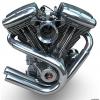Wow, that's fascinating, Brian -- does anyone have an idea of what this CD38 enzyme does, or anything more about it? I assume future therapies would perhaps target that mechanism, instead of simply boosting NAD?
Still digesting the paper but I believe you are right.
"Here we show for the first time that CD38 plays an active role in the age-related NAD decline in mammals. NAD levels, mitochondrial respiratory rates, and metabolic functions are preserved during the aging process in CD38KO mice. (KO knock out mice where the gene was deleted) We further identified that CD38 is the main enzyme metabolizing the NAD precursor NMN in vivo, and demonstrated that ablation of CD38 improves the response to NAD-replacement therapy during aging. We believe that these findings may lead to new strategies for the treatment of diseases related to an imbalance in NAD meta- bolism and energy homeostasis."
I think this is a step into identifying a cause, Not putting a damper on this, however as we have seen in many cases these are downstream indicators of something else. The CD38KO mice showed that eliminating this enzyme raised NAD levels. "Our data together show that CD38 protein and mRNA expression increase during aging in multiple tissues, and indicate that this enzyme could play a major role in age-related NAD decline." So suggestive. "Interestingly, when CD38 activity or protein expression was plotted against NAD+ decline in aging, an excellent inverse cor- relation coefficient was observed (r = 0.95 and r = 0.99, respectively; Figure S2B). These results indicate that an increase in CD38 protein expression and activity during aging could be the cause of the age-related NAD+ decrease." they go on to say; "Consistent with our hypothesis, we observed that although NAD+ levels declined significantly during chronological aging in all WT tissues, they were stable in CD38KO mice (Figures 2C– 2E)." So they make a strong argument.
CD38 Regulates Mitochondrial Function in Mammalian Tissues during Aging "First, we observed that the respiration-driving ATP synthesis decreases almost 70% in WT liver mitochondria (LM) during aging (Figure 3A), and this decrease correlated positively with the age-related decrease in NAD+ levels (r = 0.952; Figure S3A)" OK and "Oxygen consumption rates in LM were at least 2.5 times higher in all respiratory states in 1-year-old CD38KO mice compared to WT mice, irrespective of the substrate used (Figure 3B; Table S1). Similar results were also observed in mitochondria isolated from spleen of 1-year-old mice (Table S2)"
"NR is resistant to CD38 enzymatic activity in vitro (Figure 6A). However, since NR is converted to NMN (Bieganowski and Brenner, 2004; Grozio et al., 2013), it is still possible that CD38 may have a role in NR-mediated pharmacokinetics." Interesting "These results confirm that CD38 has the ability to in- fluence NAD+-replacement therapy in vivo. We propose that NAD replacement-based therapies with NMN and NR for meta- bolic dysfunction could be significantly improved by combina- tion with CD38 inhibitors."
So in conclusion NAD replacement therapy with precursors like (NR) and (NMN) could be enhanced with CD38 inhibitors. But they go on to ask another question; "A second important question concerns which cells in the tissue express CD38 during aging. Since CD38 is highly expressed in inflammatory cells, it is possible that the low-grade inflammation occurring during aging may lead to an increase in the expression of CD38 in inflammatory cells and accumulation of CD38-positive inflammatory cells in the tissue." So here is another target. There is still a number of questions to be asked but your premiss is correct but they are thinking NAD replacement therapy and CD38 inhibition.
http://www.cell.com/...4131(16)30224-8
Edited by Bryan_S, 15 June 2016 - 03:09 AM.
































 This topic is locked
This topic is locked





























